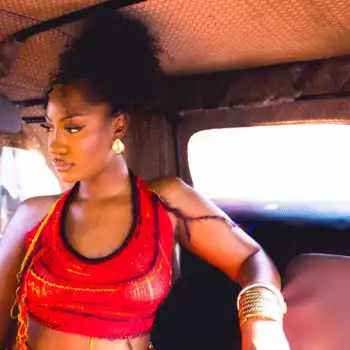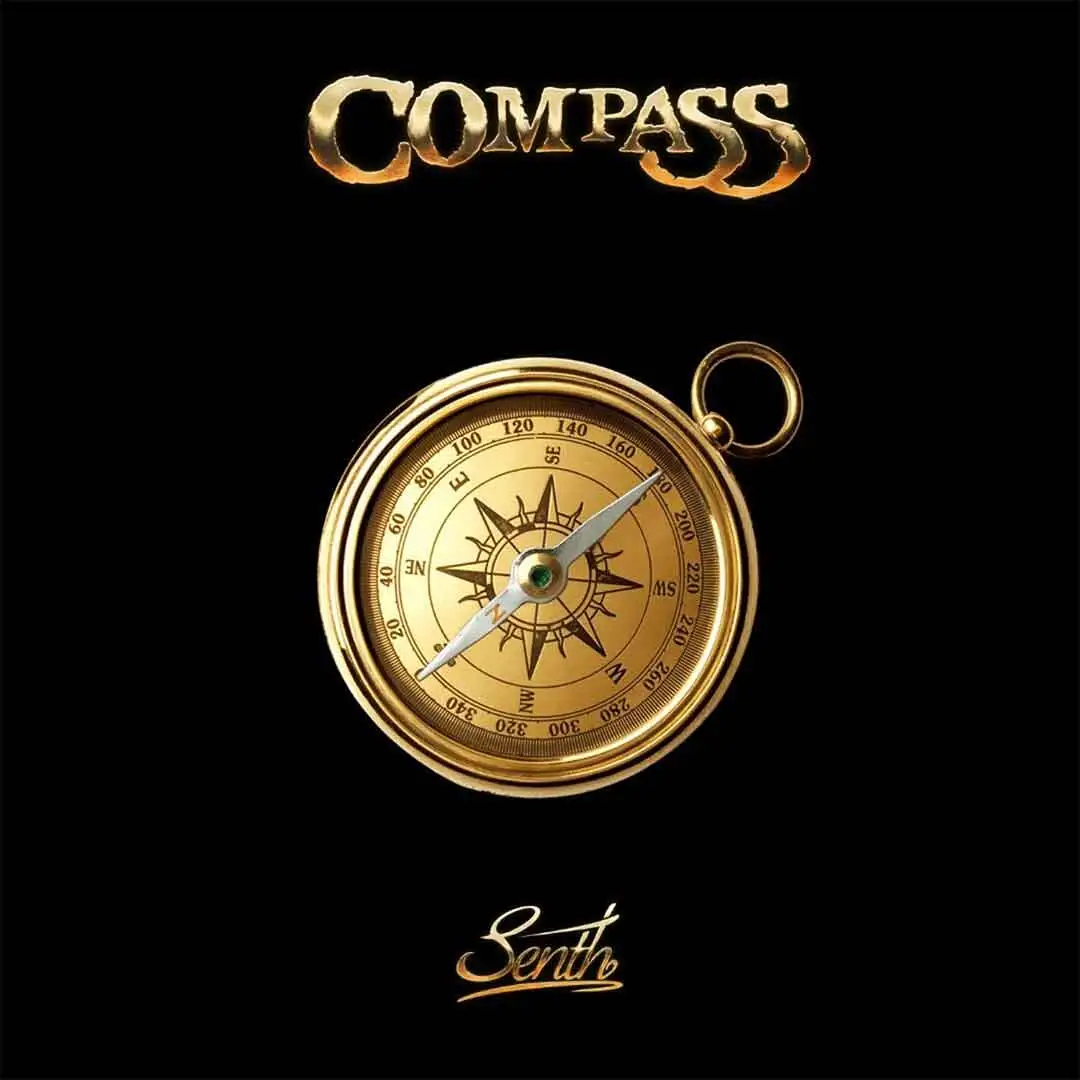I was born in 1971, at the end of the war. My family was overwhelmed with joy after my birth. I had come out a whopping eleven pounds and as a result was nicknamed “double man” by my mother’s only brother. I was born in an oba ji (something similar to a manger), where farm produce was stored for the next planting season, and was later taken to Aba General Hospital in order to get my birth registered. I was the first son of Monday and Grace, the first grandson of Eunice Ewurum, and the second grandson of Nwanyi Burunnu.
Unbelievable as it might sound, I was fully conscious of my environment as soon as I was born, a gift that I will try to explain later. Fortunately—or unfortunately, depending on who you ask—I remember things that happened right from my birth. No one could tell that I had this ability and it was a particularly difficult situation for me. There I was, a baby with the ability to understand all that was happening around me, yet having to depend completely on adults—who sometimes had no clue what I wanted—to think and act on my behalf, simply because I could not speak yet.
My grandmother Eunice came to stay with my parents after my birth, and she brought with her my cousin Ijeoma.
Traditionally, after every birth, the new mother would be aided by her mother for at least three months, and at the end of that period, the new grandmother would leave her daughter’s house with loads of gifts in exchange for the help rendered. However, my grandmother and cousin would stay with us for more than a year.
I remember that my mother used to lay me in a bamboo chair in the single room where they were still living when I was born. Above my head was an array of weird wooden objects, which I suppose were meant for my amusement. I was indeed amused, not by what the adults around me were doing to please me, but by their sheer ignorance and inability to discern exactly what my needs were at the time. My parents slept in a bamboo bed across from my chair-bed….
In other corners of the room were heaps of items—personal belongings like clothing, shoes, and cooking utensils, as well as my mother’s bicycle and sewing machine.
Even though my father was doing well in his business at the time, the war had devastated most of the cities in the Igbo region. During the three years of the war, the independent state of Biafra had created and used its own currency, but after losing the war, the Biafran money became valueless. Everyone had to start all over again.
As I grew into a toddler, soldiers, guns, and hunger—remnants from the war—were familiar sights to me. In that period, it was typical to see children look sickly and malnourished, but I was chubby and healthy. This amazed the soldiers who came around, and they took to calling me “double man” as well. The soldiers grew quite fond of me and would visit my village just to play with me. I loved having them around, but my joy was at the expense of most of the villagers who, having lived through the war, were still severely traumatized by the mere sight of soldiers and would take to their heels whenever they approached. Though I never felt their fear, I understood it, so whenever I saw the soldiers in the distance, I would alert my cousin Ijeoma; she would lock the doors and hide while I remained outside, letting the soldiers lift me and throw me up in the air. That environment had a tremendous effect on me. I started to fantasize about becoming a leader and a soldier, and vowed that I would work toward this, even if it took a lifetime.
Unlike many other children, I started walking by the time I was seven months old and was talking before my first birthday. According to my mother, my first word was onyeocha, meaning “white person.” She remembered me telling her that I wanted to marry a white girl, and was amused not just by my speaking, but by my fascination with white people. This enthrallment grew, and in my elementary school days I would draw pictures of white people while other children drew tigers and elephants. So deep was my fascination that my relatives believed I would one day marry a white girl.
I grew up with a lot of adult attention, which I enjoyed immensely. One evening, roasting corn with Uncle Francis, I had a terrible accident. For about a minute Uncle Francis had left me sitting on a tall, rocky stool in front of the charcoal fire that was roasting the corn, while he went inside the house. I dozed off on the stool and fell into the fire. Nobody believed that I would survive the third-degree burns, and in following the Faith Tabernacle teachings, I was never taken to a hospital. I endured the excruciating pain, a remarkable feat for a baby, and still have a scar on my chest from the fire. What I never told anyone was that I did not fall into the fire by accident. When I fell asleep on the stool, I saw some strange people in a dream who were trying to take me with them; as I struggled, they pushed me into the charcoal fire and held me there, where I lay screaming until someone found me. It might have seemed like a dream, but the hands pinning me down were all too real. I suspect that this incident was connected to my father’s involvement with the secret society.
I grew faster than most children my age, and I retained the gift of seeing supernatural things. I sometimes told other children of their future, though mainly the negative aspects. Sometimes I would tell them of the impending death of a parent, or when they were about to receive beatings from their parents or get hurt in other ways. Many times I would see the death of my friends or relatives and tell them. My predictions usually came to pass, and because of this my friends became afraid of me.
At age four, I was enrolled into elementary (primary) school. At the time, the enrollment requirement was for the middle fingertip of the right hand of the prospective pupil to be able to go across the child’s head and touch his or her left ear. This was to ascertain the age of the child in the absence of birth certificates, which many did not have during this period. The usual age for enrollment was six, but I took the test and passed. However, some of my friends, even those who were up to six years old, failed the test because their growth had been impeded due to malnutrition brought about by the war.
I was happy to be in school. At that time, I would go to class with the square piece of slate that I wrote on, as well as different colors of chalk. When I got home each day, I would take time to clean my slate. I would gather some fresh green leaves (particularly the ones called Awolowo leaves) from the bushes, mix them with charcoal and a little water, rub the paste over the slate, and leave it to dry for hours. I had a lot of fun in primary one (first grade). Between learning our ABCs and numbers, we spent a lot of time singing and playing. We were also told a lot of folktales and were taught Christian religious studies.
I was fearless—unafraid of the dark or of being alone—but that changed suddenly after a traumatic experience. One day, returning from the creek with my cousin Uchenna, our buckets of water balanced on our heads, something very unusual happened. We saw a female in black approaching us. That would have been no reason to fear, except that she was hovering above the ground, not walking, and beside her was a creature I find hard to describe. It had the head of a crocodile and four enormous, diamond-shaped eyes. Its neck was like a giraffe’s, and it seemed not to have well-defined feet but had several hands, with nails about twenty-four inches long. The creature’s abdomen seemed to change color like a chameleon. Chills ran through my body, almost paralyzing me. Uchenna and I ran home as fast as we could, abandoning our buckets where they had fallen. When we told our family about this, they said we must have seen a ghost—but I suspected, once again, that it was related to my father’s association with the secret society. From that day on, I became fearful of the dark and of being left alone.
My ordeal with ghosts persisted, and I developed a serious fear of them due to many terrible recurring nightmares. Nevertheless, I defeated these ghosts every time by using the magic words my mother had taught me to shout whenever I was in trouble: “The Blood of Jesus!” Most of my dreams were extraordinary—to borrow my father’s words, they were more like out-of-body experiences or astral traveling. These dreams usually involved me coming out of my body and floating at the speed of light through a series of scenes, while still conscious of my body lying in my bed. Sometimes, while in this state, I would be attacked by the same group of ghosts who, for some reason, wanted me dead at all costs. In each encounter, when I got tired of running from them, I would become bold and declare to them: “Do as you wish! You can cut and chop me into pieces, but it doesn’t matter because I know that I am dreaming and I will wake up in my bed.” Each time, after taunting and telling off the ghosts, I would repeat the magic phrase, “The Blood of Jesus.” The phrase never failed; it always saved me, and whenever I said it, I would wake up in my bed.
I was a very stubborn child and remained so through the years. At times I could be extremely violent and out of control. There was no moderation or compromise in anything I did; it was always my way or nothing at all. In spite of all this, I was still influenced by certain religious beliefs that my parents had inculcated in me. The Bible readings and prayers that we had at my house early each morning since my birth had a significant effect on me, causing me to rebel against certain aspects of the culture that surrounded me. At a very tender age I became a crusader, bent on destroying all the idols’ houses scattered around my village. Sometimes I would gather boys and girls my age and we would go around the village, knocking down all the wooden gods and the objects of their worship that were so common at the time—despite the fact that most of the townspeople went to church and claimed to be Christians.
In my village there was a popular goddess called Nneorji (mother of the iroko tree). The iroko is highly revered among the Igbo people, possibly because it grows to be very large, with lots of branches that provide shade. People often gather under the iroko to conduct meetings or to get respite from the heat. The iroko has a very long life span, some living more than five hundred years. When an iroko is cut down, it becomes a huge source of revenue. The timber is cut into different kinds of construction wood, and the branches are used as firewood. Traditionally, before an iroko tree is cut down, certain venerations and sacrifices are required. Some villages in Igbo land don’t cut down their iroko trees at all; instead, they worship and make sacrifices to them—animals and humans included.
The little house of the goddess Nneorji—nine by nine feet and made of mud, with a thatched roof—was built hundreds of years ago, located prominently at the entrance to the village. A carved wooden statue of Nneorji stood in the center of the hut, leaning against a wall. To the left and right were a number of smaller wooden gods, which I presumed were Nneorji’s sons, daughters, and kindred—more than twenty of them all together. Every few days the keeper of Nneorji’s house would bring sacrifices to her. I could not fathom why my village was spending so much on inanimate objects, and it reminded me of a portion of the Bible my mother used to read to us, in which it clearly stated that idol worship was very offensive to God. It also reminded me of the Bible story in which Moses, having ascended Mount Sinai, returned with the Ten Commandments only to meet the Israelites worshipping a calf that they had made out of their jewelry; in his anger, Moses smashed the slate on which the commandments had been written, and the Israelites were severely punished. I concluded that since the adults in my village weren’t brave enough to stop the idol worship, I would do it myself.
It was believed that whoever went into Nneorji’s house without going through the proper process would die. Though my friends and I bravely went to the house with the intention of destroying it, they wouldn’t dare go inside with me. I marched into the hut and knocked down all the wooden gods, including Nneorji, challenging her to fight back in order to prove she was indeed a god. Of course the figure remained silent, and I said, “I thought as much. You’re just a piece of wood.”
[ads4]
I returned to the house later, shocked to find the gods and goddesses standing again. I repeated my destruction several times, always returning to find the statues intact. But I was not deterred. I remained relentless in my quest to destroy every idol in my village. I gradually took the gods out of Nneorji’s house and burned them, until there was nothing left in the house.
To Be Continued…

.jpg?w=900&ulb=true&ssl=1)
.png?w=300&ulb=true&ssl=1)
.jpg?w=300&ulb=true&ssl=1)
.jpg?w=300&ulb=true&ssl=1)




![Iron Mask (2023) [Korean]](https://www.memesng.com/r/storage.waploaded.com/images/7d02d82d6cb66ee380c87f783fd94386.jpg?w=50&ulb=true&ssl=1)
![Shaitaan (2024) [Hindi]](https://www.memesng.com/r/storage.waploaded.com/images/8ca72f516169b04d22bc53a153323dd0.jpg?w=50&ulb=true&ssl=1)











![The Atypical Family (2024) [Korean] (TV series)](https://www.memesng.com/r/storage.waploaded.com/images/2f9fcaf3ab35f73d5d1baeccd3b9e128.jpg?w=50&ulb=true&ssl=1)
![Young Babylon (2024) [Chinese] (TV series)](https://www.memesng.com/r/storage.waploaded.com/images/63c0b3bc4efcc7b6d376172a76b5df43.jpg?w=50&ulb=true&ssl=1)
![Tender Light (2024) [Chinese] (TV series)](https://www.memesng.com/r/storage.waploaded.com/images/fd1d124599bebaeab00aac83d20dced6.jpg?w=50&ulb=true&ssl=1)
![Men in Love (2024) [Chinese] (TV series)](https://www.memesng.com/r/storage.waploaded.com/images/9372d731946c3734b7ed3176541454a6.jpg?w=50&ulb=true&ssl=1)
![Lady Revenger Returns from the Fire (2024) [Chinese] (TV series)](https://www.memesng.com/r/storage.waploaded.com/images/6de766fa429680dccd2fbc8c665663dd.jpg?w=50&ulb=true&ssl=1)
{{comment.anon_name ?? comment.full_name}}
{{timeAgo(comment.date_added)}}
{{comment.body}}
{{subComment.anon_name ?? subComment.full_name}}
{{timeAgo(subComment.date_added)}}
{{subComment.body}}